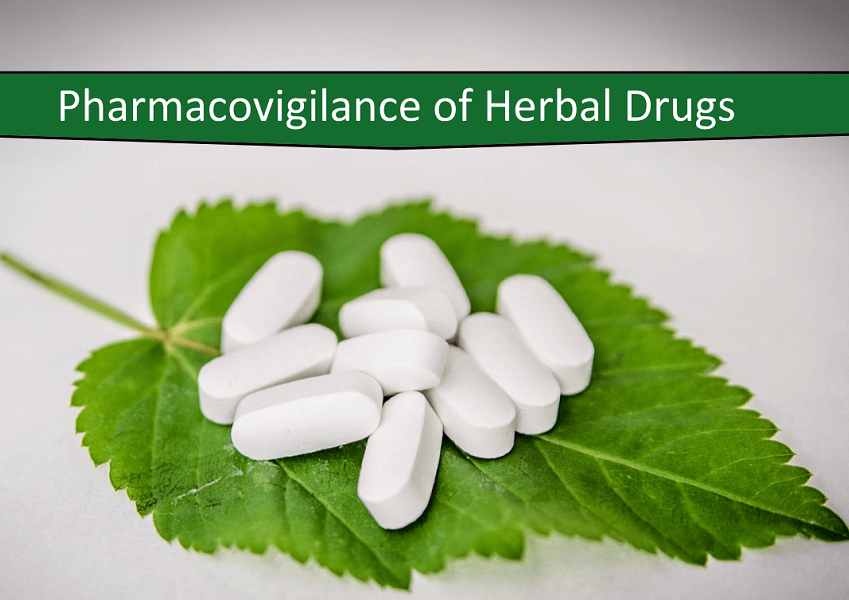Pharmacovigilance in herbal and dietary supplements is crucial due to their growing popularity and the unique challenges they present. Unlike pharmaceutical drugs, these products often have less standardized formulations and can interact with medications in complex ways. Evaluating their safety involves several distinct considerations:
Challenges in Pharmacovigilance for Herbal and Dietary Supplements
1. Lack of Standardization:
Issue: Herbal and dietary supplements can vary significantly in terms of composition, dosage, and quality, even between batches of the same product.
Implication: This variability makes it difficult to establish consistent safety profiles and complicates the assessment of adverse effects.
2. Limited Clinical Trials:
Issue: Many supplements have not been subject to rigorous clinical trials, leading to gaps in understanding their safety and efficacy.
Implication: The lack of high-quality clinical data makes it challenging to evaluate the risk-benefit balance of these products comprehensively.
3. Complex Interactions:
Issue: Herbal and dietary supplements can interact with prescription medications, potentially altering their effectiveness or increasing the risk of adverse effects.
Implication: Monitoring and understanding these interactions require specialized knowledge and can complicate the evaluation of safety.
4.Regulatory Differences:
Issue: Regulatory frameworks for supplements vary widely across regions. For example, the FDA in the U.S. regulates dietary supplements differently from pharmaceuticals, often with less stringent requirements.
Implication: This can lead to inconsistencies in safety monitoring and reporting practices internationally.
5. Underreporting of Adverse Effects:
Issue: Adverse effects of supplements are often underreported, either due to lack of awareness or because they are not perceived as serious by users or healthcare providers.
Implication: This can result in incomplete safety data and an underestimation of the risks associated with these products.
Approaches to Evaluating Safety
1. Adverse Event Reporting Systems:
Approach: Implement robust systems for reporting adverse events related to supplements. This includes encouraging healthcare providers and consumers to report issues.
Implication: Improved reporting can help identify safety concerns more quickly and contribute to better data on supplement safety.
2. Surveillance and Monitoring:
Approach: Utilize surveillance systems to track adverse events and potential interactions. This can include databases and registries that collect data on supplement use and outcomes.
- Implication: Enhanced surveillance allows for early detection of safety signals and helps in understanding the broader impact of supplements on public health.
3. Integration of Data Sources:
Approach: Combine data from various sources, including clinical trials, observational studies, and real-world evidence, to build a comprehensive safety profile.
Implication: A holistic view of the data can lead to more accurate risk assessments and inform better regulatory decisions.
4. Education and Awareness:
- Approach: Educate healthcare providers and consumers about the potential risks associated with herbal and dietary supplements and encourage proactive reporting.
- Implication: Increased awareness can improve the identification of adverse effects and promote safer use of supplements.
5. Quality Control and Standardization:
- Approach: Advocate for and implement better quality control measures and standardization in the manufacturing of supplements.
- Implication: Consistent product quality can reduce variability and improve the reliability of safety evaluations.
6. Research and Development:
- Approach: Support and conduct research to fill knowledge gaps regarding the safety and efficacy of herbal and dietary supplements.
- Implication: More research can lead to better understanding, improved safety profiles, and evidence-based recommendations for use.
Regulatory Considerations
1. Regulatory Oversight:
- Approach: Strengthen regulatory frameworks to ensure supplements are subject to rigorous safety evaluations and quality controls.
- Implication: Improved oversight can enhance consumer protection and ensure that supplements meet safety standards.
2. Harmonization of Standards:
- Approach: Work towards harmonizing safety and reporting standards internationally to facilitate global safety monitoring.
- Implication: Consistent standards can help in comparing safety data across regions and improving global safety practices.
3. Collaboration with Industry:
- Approach: Encourage collaboration between regulators, industry, and research organizations to address safety concerns and improve practices.
- Implication: Collaborative efforts can lead to more effective safety monitoring and better regulation of supplements.
In summary, pharmacovigilance for herbal and dietary supplements requires a multifaceted approach that addresses the unique challenges of these products. By improving reporting systems, enhancing surveillance, integrating diverse data sources, and supporting research and quality control, stakeholders can better evaluate and ensure the safety of supplements.
To learn more from related topics, please visit our website or newsletter at https://medipharmsolutions.com/newsletter/


No Comments